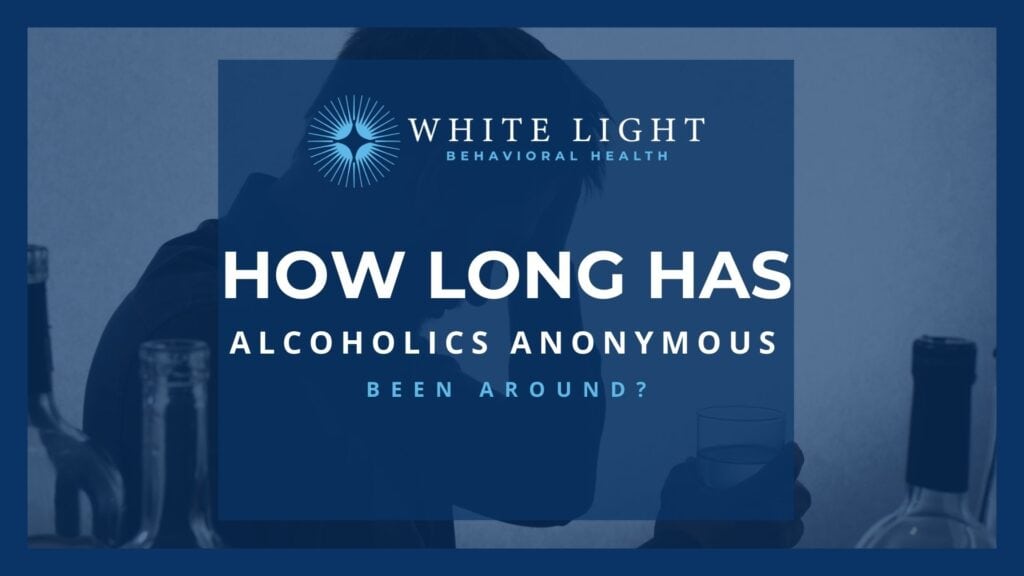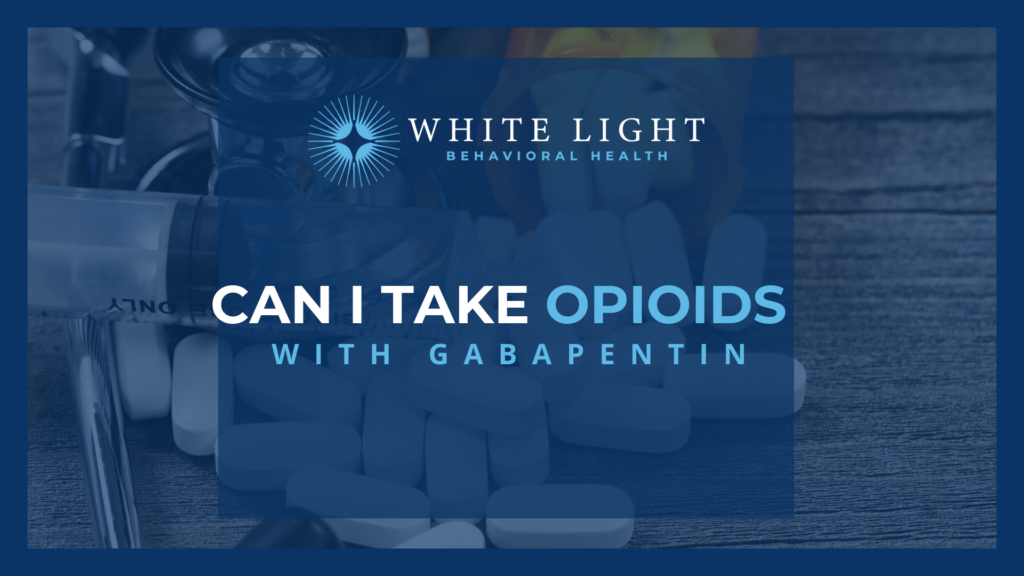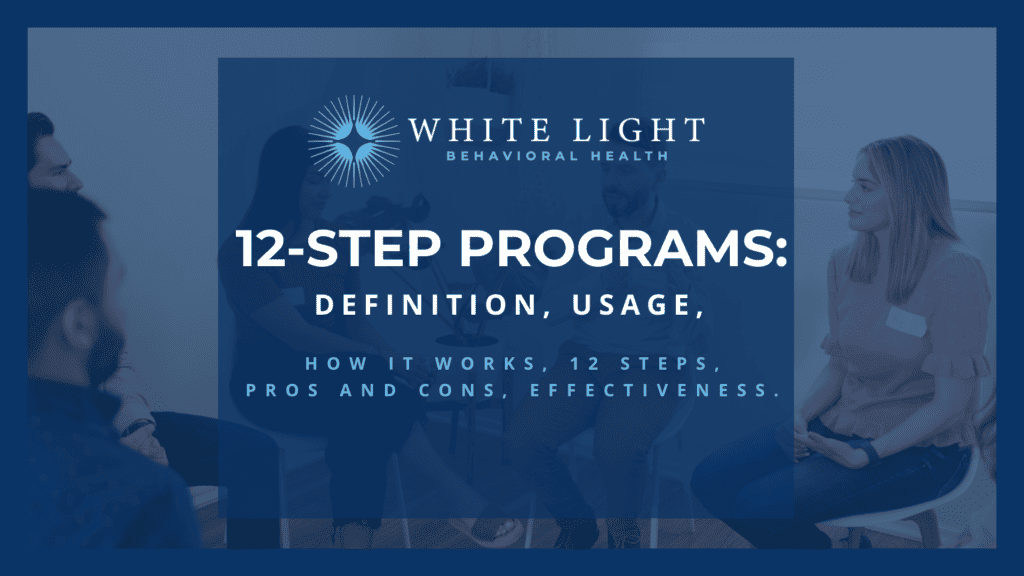How Many Years Has AA Been Around?
Alcohol addiction treatment in a reliable licensed addiction treatment center, like White Light Behavioral Health, is always a good place to start a recovery program. It’s the right place for addiction sufferers to take a permanent break from their substance use while getting their feet planted firmly back on the ground. However, the day will soon come when all clients have to exit the treatment center and restart their sober lives while living life on life’s terms. What happens then?
Upon leaving rehab, every client has to figure out how to protect the sobriety they have built over their 30-60 days in treatment. Fortunately, most people in recovery know precisely where to find aftercare resources that will help keep them on the path to recovery. Alcoholics Anonymous, or AA, is one such well-known resource.
The History of Alcoholics Anonymous
The story of when and how AA came to be is legendary. It has been told millions of times in Twelve Steps meetings all over the world.
AA is where it all began. By most accounts, it started in the year 1935 with a chance meeting between Bill Wilson (Bill W.) and Bob Smith (Dr. Bob). Both men had alcohol use issues and wanted to help themselves before it was too late.
Wilson was a stockbroker in New York, and Smith was working as a general surgeon in Akron, Ohio. At the time of their chance meeting in Akron, the two men were involved with a self-help Christian revivalist group called the Oxford Group.
Before an Oxford Group meeting, Wilson and Smith struck up a conversation that eventually led to the mutual disclosure of their issues with alcohol. Since the Oxford Group essentially focused on Christian values and living with no emphasis on addiction issues, neither man felt they could get the help they needed from the Group’s leadership. Just the same, they both expressed a desire to deal with their respective alcohol use problems.
In an act of commensuration, Wilson and Smith agreed to start meeting at least once a week to discuss their alcohol-related trials and tribulations. The first of those meetings is considered the birth of AA and the start of a movement that now includes more than 35 different 12-step groups that aid in addiction recovery.
More About AA
AA is a fellowship of men and women who are dedicated to the cause of alcohol addiction recovery for each member. Membership is free. However, members are encouraged to make donations in support of AA’s administrative needs. That would include meeting room rentals and the publication and distribution of AA literature.
The cornerstone of AA’s charter is adherence to the Twelve Steps of Recovery. If members work the Twelve Steps and participate in helping new members do the same, the presumption is that said members will find it easier to maintain their sobriety.
It’s noteworthy that members are also asked to adhere to AA’s Twelve Traditions. These Traditions are intended to serve as a guideline for how meetings should be run and what is expected of each member. The ultimate goal of these Traditions is to provide recovering alcoholics with some much-needed structure in their lives.
Currently, AA meetings are available in almost every country in the world. The AA International organization is charged with maintaining an online meeting list that includes all registered meetings. No matter where you are in the world, there is an excellent chance you can find a meeting.
The Four Components of the Twelve Steps
To be clear, there is nothing arbitrary about the Twelve Steps of Recovery. They are ordered from Step 1 to Step 12 for a very particular reason. They offer a progressive way for members to establish and maintain sobriety.
The best way to explain how the steps are intended to work is to group them into four components. Each component is intended to represent a specific part of the recovery process.
Admission of Powerlessness
Sobriety is not possible if the addiction sufferer is unwilling to admit they have a problem. Steps 1 to 3 focus on admitting powerlessness over the monster of alcohol addiction.
Step 1 speaks directly to making the aforementioned admission. Step 2 focuses on the addiction sufferer believing recovery and restoration of sanity is possible with hard work. Step 3 addresses the need for the addiction sufferer to turn their life over to a higher power of understanding.
AA has no real religious affiliation. A higher power could be God, but for addiction sufferers who don’t believe in God, their higher power can be anything that they believe is good and will serve their best interest.
Taking Responsibility for Transgressions
Steps 4 to 6 address the need for the addiction sufferer to admit to the transgressions they made while in the throes of addiction.
Step 4 talks about taking a fearless inventory of those transgressions—all of them. Step 5 requires the addiction sufferer to openly discuss those transgressions with their higher power (in prayer) and at least one other person. The other person could be a victim or perhaps another AA member. Step 6 addresses the addiction sufferer becoming willing to accept forgiveness for their admitted transgressions.
Making Amends
The hard work begins with this component. Steps 7 to 9 are part of the work that needs to be done.
Step 7 involves the addiction sufferer humbly asking their higher power to remove the human defects that led to and were created by alcohol addiction. Step 8 requires the addiction sufferer to make a comprehensive list of everyone who was harmed by their addictive behaviors. They also have to show a willingness to make amends to those victims whenever possible without causing further harm. Step 9 is all about making those amends whenever and wherever possible.
Maintaining Sobriety and Helping Others
After clearing the first three components, it’s now on to the last one. Steps 10 to 12 focus on walking the walk and staying sober.
Step 10 addresses the importance of the addiction sufferer remaining diligent and continuing to take inventory of mistakes and correcting them as soon as possible. Step 11 asks the addiction sufferer to remain in touch with their higher power to maintain the strength they need to stay sober. Step 12 involves them taking the knowledge of recovery and sharing it with new members who are still suffering.
After working the Twelve Steps to completion with a sponsor, the most successful AA members take one final step. They don’t hesitate to work the steps again as a means of staying strong and committed to sobriety.
Are You Ready for AA?
Short of a court order, no one is going to force you into getting involved with AA. It’s a voluntary program that exists for problem drinkers who are sick and tired of being sick and tired.
White Light Behavioral Health specializes in helping addiction sufferers and individuals who might be suffering from a mental or emotional illness.
If you are ready to wave the white flag, you have to be willing to state clearly that you have a problem and that you need help. If and when you are ready to do that, the help will be there for you.
In preparation for participation in AA, you need time. You need time to detox alcohol out of your system. You will then need time to work with addiction treatment counselors on figuring out why you feel the need to medicate yourself with alcohol. There is a why, and the sooner you can identify it, the sooner you can start developing some better coping skills to combat it. The development of better coping skills is necessary in your quest to avoid relapses.
Avoiding Relapse
From the moment you decide to start fighting back against your alcoholism, you will have to remain diligent. You’ll have to use alternative coping strategies to help you control or eliminate stimuli that might be associated with thoughts of drinking and avoid high-risk situations that might threaten your sobriety, as noted by Gabriel Espinoza in a study published on Alcohol.org.
There are three keys to being able to avoid relapses. First, you have to remember who you are and what lives inside of you. You can’t give in to temptation or your triggers.
Second, you have to be able to recognize the warning signs of an impending relapse. Here are a few of the potential signs:
- Negative thoughts or feelings start creating the need to escape
- Thinking the coast is clear for light social drinking
- Exhibiting some of your past harmful behaviors
- Increased desire to associate with drinkers or visit places where drinking is abundant
- Not using support systems, like AA, when the urges to drink get stronger
The third and final key is making sure you stay connected with your support systems. We have already established that AA meetings are readily available for anyone who wants or needs them. Depending on where you live, there is likely a meeting every night even if you have to commute a few miles to get there. For 88 years, Alcoholics Anonymous has proven to be a viable resource in the battle against alcohol addiction.
We hope you will find this information to be helpful and useful for your healing journey. At White Light Behavioral Health, we can offer you a variety of addiction treatment methodologies that will set you on the path to recovery. We further support AA as a viable aftercare option that can help you stay sober. If you need help or have questions, please contact us as soon as possible.
How does Alcoholics Anonymous work?
Alcoholics Anonymous (AA) operates through a 12-step program that emphasizes personal accountability, spiritual growth, and peer support. Members attend meetings, share experiences, and work through the steps with a sponsor to achieve and maintain sobriety.
Is Alcoholics Anonymous effective?
Research suggests that Alcoholics Anonymous can be effective for many individuals struggling with alcohol addiction. Studies have shown that participation in AA is associated with improved abstinence rates and overall well-being for some members.
Who founded Alcoholics Anonymous?
Alcoholics Anonymous was founded in 1935 by Bill Wilson and Dr. Bob Smith, two individuals who struggled with alcohol addiction themselves. Their shared experiences and commitment to helping others led to the development of the AA program.
Can anyone join Alcoholics Anonymous?
Yes, anyone who has a desire to stop drinking can join Alcoholics Anonymous. AA is open to individuals of all ages, backgrounds, and beliefs. There are no fees or dues for membership, and anonymity is respected.
What happens at an Alcoholics Anonymous meeting?
Alcoholics Anonymous meetings typically involve members sharing their experiences with alcoholism, discussing their progress in recovery, and offering support to one another. Meetings may vary in format, but they generally follow a similar structure centered around the 12-step program.
How can I find an Alcoholics Anonymous meeting near me?
You can easily find Alcoholics Anonymous meetings in your area by visiting the official AA website or contacting your local AA intergroup or central office. Meetings are held regularly in various locations, including community centers, churches, and online platforms.
What role does spirituality play in Alcoholics Anonymous?
Spirituality is a key aspect of the Alcoholics Anonymous program, but it is not tied to any specific religion or belief system. Members are encouraged to develop their own understanding of a higher power and to incorporate spiritual principles into their recovery journey.
Can I attend Alcoholics Anonymous meetings if I’m not religious?
Yes, Alcoholics Anonymous is inclusive of individuals with diverse spiritual beliefs, as well as those who do not identify with any particular religion. The program focuses on personal growth and moral principles rather than adherence to a specific faith.
How does alcoholism impact families?
Alcoholism can have profound effects on families, including strained relationships, financial difficulties, emotional turmoil, and increased risk of domestic violence. Family members may experience feelings of guilt, shame, and helplessness as they navigate the challenges associated with their loved one’s addiction.
How does Alcoholics Anonymous support family members of those struggling with alcoholism?
Al-Anon and Alateen are organizations affiliated with Alcoholics Anonymous that offer support to family members and friends of individuals struggling with alcoholism. These groups provide a safe and understanding environment for sharing experiences and coping strategies.

Share This Post



